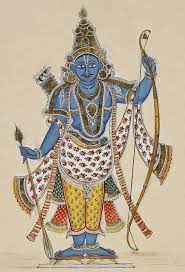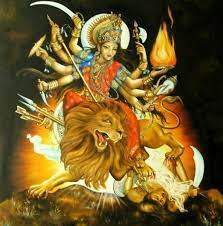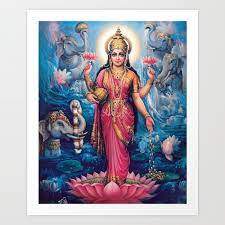
The Many Faces of Lord Vishnu
In Hinduism, Lord Vishnu is one of the principal deities of the Holy Trinity, alongside Brahma the Creator and Shiva the Destroyer. Vishnu is often referred to as the Preserver or Sustainer of the universe. However, what makes Lord Vishnu truly captivating is the multitude of forms and incarnations he assumes to maintain cosmic order and guide humanity. Let's explore the multifaceted nature of Lord Vishnu and the diverse roles he plays in Hindu mythology.
The Universal Sustainer
- Vishnu as the Preserver:

Vishnu's primary role is to preserve and protect the universe. He is believed to be responsible for maintaining the cosmic order (dharma) and ensuring that creation continues without disruption.
- The Protector of Dharma:

Whenever dharma is threatened and adharma (unrighteousness) prevails, Lord Vishnu incarnates on Earth to restore balance. These divine incarnations are known as "Avataras."
The Ten Avatars of Vishnu
Perhaps the most famous aspect of Lord Vishnu is his ten principal incarnations, each with a specific purpose and symbolism:
- Matsya (The Fish):

Vishnu takes the form of a fish to save the ancient scriptures (Vedas) and the sage Manu from a great deluge.
- Kurma (The Tortoise):

In this form, Vishnu supports Mount Mandara as a churning rod during the churning of the ocean to obtain the nectar of immortality (amrita).
- Varaha (The Boar):

Vishnu manifests as a boar to rescue the Earth (personified as the goddess Bhudevi) from the demon Hiranyaksha.
-
Narasimha (The Man-Lion):

Vishnu takes a half-man, half-lion form to protect his devotee Prahlada and defeat the demon king Hiranyakashipu.
- Vamana (The Dwarf)

In this avatar, Vishnu assumes the form of a dwarf Brahmin to outwit the demon king Bali and restore the heavens to the Devas.
- Parashuram

Vishnu incarnates as Parashurama to rid the world of corrupt and oppressive Kshatriya rulers.
- Rama (The Prince of Ayodhya):

Lord Vishnu's most celebrated incarnation, Rama, exemplifies righteousness, duty, and devotion. His story is told in the epic Ramayana.
- Krishna (The Divine Playful Cowherd):

Lord Krishna, another beloved incarnation, imparts profound spiritual wisdom in the Bhagavad Gita and engages in various divine adventures and acts of kindness.
- Kalki (The Future Warrior):

It is believed that Lord Vishnu will incarnate as Kalki in the future to rid the world of evil and establish a new era of righteousness.
Significance and Devotion
Devotees of Lord Vishnu, known as Vaishnavas, hold a deep reverence for him and his various avatars. Vishnu is often depicted with blue skin, holding a discus (chakra), a conch shell (shankha), a mace (gada), and a lotus flower (padma). His consort, Goddess Lakshmi, symbolizes wealth and prosperity, and the two are inseparable.
Lord Vishnu's devotees seek his blessings for protection, guidance, and salvation (moksha). They believe that devotion to him can lead to spiritual liberation and eternal peace.
Conclusion
Lord Vishnu, with his numerous avatars and roles, represents the eternal cycle of creation, preservation, and destruction. His multifaceted nature serves as a reminder of the diversity and complexity of the divine in Hinduism. As the Preserver and Protector of dharma, Vishnu's enduring influence extends beyond the realms of mythology, touching the hearts and souls of millions who turn to him for guidance and solace.

